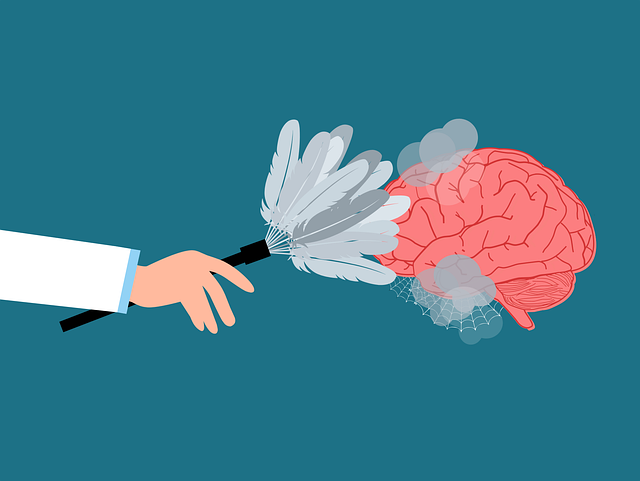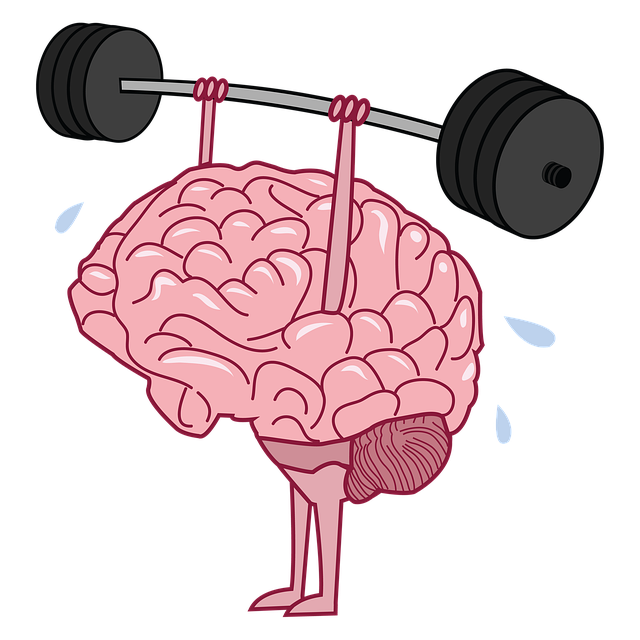Specialized coaching programs, tailored for individual needs and cultural contexts, are crucial in today's fast-paced world, especially in vibrant cities like Denver. These programs integrate techniques such as Stress Management and Conflict Resolution Skills to empower individuals with resilience. For mental health challenges unique to Denver, including sexual addiction, burnout, and low self-esteem, evidence-based strategies like Cognitive Behavioral Therapy (CBT), compassion cultivation, and trauma support services offer multi-faceted healing approaches. Continuous improvement is measured through both quantitative and qualitative outcomes, ensuring programs like Denver Sexual Addiction Therapy cater to evolving participant needs while promoting mental health awareness.
In today’s fast-paced world, mental wellness coaching programs have emerged as vital tools for fostering resilience and enhancing overall well-being. This article explores the development of specialized coaching initiatives, with a particular focus on Denver’s unique context. We delve into understanding the growing need for tailored programs, such as Denver Sexual Addiction Therapy, that address specific challenges. By examining key components and continuous improvement strategies, we highlight effective approaches to designing impactful mental wellness coaching.
- Understanding the Need for Specialized Coaching Programs
- Designing Effective Mental Wellness Coaching in Denver
- Key Components of a Successful Sexual Addiction Therapy Program
- Measuring Impact and Continuous Improvement Strategies
Understanding the Need for Specialized Coaching Programs

In today’s fast-paced world, mental wellness is a paramount concern, and specialized coaching programs play a pivotal role in addressing unique challenges. While general therapy approaches have their merits, they often fail to cater to specific needs such as Denver Sexual Addiction Therapy. This is where tailored coaching interventions become indispensable; they offer a more focused and personalized approach to healing and growth.
Specialized programs recognize that different individuals bring diverse backgrounds, experiences, and cultural contexts to therapy. Healthcare Provider Cultural Competency Training is crucial in ensuring coaches are equipped to navigate these complexities effectively. By integrating Stress Management techniques and Conflict Resolution Skills, these programs empower clients with tools to overcome obstacles, fostering a sense of agency and resilience.
Designing Effective Mental Wellness Coaching in Denver

In designing effective mental wellness coaching programs in Denver, a nuanced approach is essential to cater to the unique needs of individuals and organizations alike. The vibrant cityscape of Denver, with its bustling atmosphere, presents both opportunities and challenges for addressing mental health concerns. Customized coaching sessions should focus on evidence-based strategies tailored to specific issues such as Denver sexual addiction therapy, burnout prevention, and self-esteem improvement. By integrating these topics into structured workshops and one-on-one sessions, coaches can facilitate meaningful change.
Stress management is a key area where organizations in Denver can benefit from comprehensive coaching programs. Well-designed workshops focused on stress reduction techniques, time management, and emotional intelligence can empower employees to navigate the demands of urban life. These programs, when led by qualified mental wellness coaches, contribute to a healthier, more productive workplace culture, ensuring that individuals feel supported in their personal growth journeys while navigating Denver’s fast-paced environment.
Key Components of a Successful Sexual Addiction Therapy Program

A successful Denver Sexual Addiction Therapy program is multifaceted, addressing not just the addiction but also the underlying causes and promoting holistic healing. Key components include a safe and non-judgmental environment fostering open communication, tailored treatment plans that consider individual needs and co-occurring disorders, and evidence-based techniques such as cognitive behavioral therapy (CBT) to help individuals identify and change unhealthy thought patterns.
Incorporating compassion cultivation practices and trauma support services can significantly enhance the therapeutic process. These approaches foster inner strength development by teaching coping mechanisms, self-compassion, and emotional regulation skills—essential tools for maintaining sobriety and rebuilding a fulfilling life.
Measuring Impact and Continuous Improvement Strategies

Measuring the impact of mental wellness coaching programs is a crucial step to ensure their effectiveness and make informed decisions for continuous improvement. This process involves assessing both the quantitative and qualitative outcomes, such as reductions in symptoms of anxiety or depression, improvements in work performance, and enhanced overall life satisfaction. By utilizing validated tools and client feedback, coaches can gain valuable insights into what’s working and where adjustments are needed. For instance, at Denver Sexual Addiction Therapy, they employ comprehensive assessment models to track progress and tailor interventions accordingly.
To foster continuous improvement, mental wellness coaching programs should incorporate dynamic strategies. Regular program reviews, client-centered feedback mechanisms, and data-driven decision-making are key practices. Communication strategies play a vital role in this process, encouraging open dialogue between coaches and clients to identify challenges and co-create solutions. By embracing these approaches, the program can evolve, ensuring it aligns with the ever-changing needs of participants and contributing to broader mental health awareness.
Mental wellness coaching programs, especially tailored for issues like sexual addiction, are vital in fostering healing and recovery. By combining specialized knowledge with a supportive environment, these programs offer transformative experiences. In Denver, where such therapy is increasingly sought after, a well-designed approach focusing on individual needs, evidence-based techniques, and continuous evaluation ensures optimal outcomes. Key components include education, accountability, and a safe space for exploration—all essential elements of successful Denver sexual addiction therapy. Through ongoing refinement, these programs can significantly impact lives, providing lasting solutions for those seeking mental wellness.












